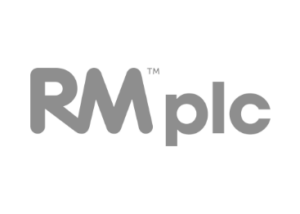Marked by rapid technological advancements and an ever-evolving digital landscape, the role of sustainability and ethics in the world of digital retail cannot be overstated. As consumers become increasingly conscious of their purchasing decisions, businesses are recognizing the need to align their practices with principles that prioritize the well-being of the planet and its inhabitants. In this article, we will explore the pivotal role of sustainability and ethics in digital retail and how businesses can leverage these values to create a more responsible and successful commerce ecosystem.
As digital retail continues to gain prominence, the environmental impact of online transactions is garnering attention. The carbon footprint associated with shipping, packaging, and the energy consumption of data centers poses challenges for sustainability. Acknowledging this, forward-thinking digital retailers are implementing eco-friendly practices, such as optimizing supply chain logistics, using recyclable packaging materials, and investing in renewable energy sources for their operations. By integrating sustainability into their business models, these companies not only contribute to environmental preservation but also resonate with eco-conscious consumers, fostering brand loyalty.
Ethics in digital retail extends beyond environmental concerns, encompassing fair labor practices, data privacy, and responsible marketing strategies. As the digital space becomes more interconnected, safeguarding customer data and ensuring transparency in business operations become critical aspects of ethical conduct. Businesses that prioritize these principles not only build trust with their customers but also navigate potential legal and reputational risks. The ethical dimension of digital retail also involves fostering inclusivity and diversity, both in the workforce and in the representation of products and services, reflecting the values of an evolving global society.

Sustainability: A Core Commitment
Sustainability goes beyond being a trendy term; it represents a foundational dedication to preserving the environment for generations to come. Within the realm of digital retail, this means embracing eco-friendly practices across the entire supply chain, from sourcing raw materials to packaging and delivery. Incorporating sustainable technologies and utilizing renewable energy sources are also pivotal in diminishing the carbon footprint of online retail operations.
Moreover, businesses can lead by example by incorporating circular economy principles, where products are designed with longevity and recyclability in mind. By reimagining the lifecycle of products, companies can minimize waste and contribute to a more sustainable future.
Sustainability in Ecommerce: 8 Ways Your Brand Can Support the Growing Call for Eco-Friendly Practices.

Ethical Practices: Building Trust and Integrity
Ethical considerations in digital retail encompass a wide range of factors, from fair labor practices to responsible sourcing and transparent business operations. Upholding ethical standards builds trust with consumers, as they seek assurance that their purchases do not come at the expense of human rights, fair wages, or exploitative practices.
Implementing transparent supply chain management systems and adhering to international labor standards are essential steps toward ensuring ethical commerce. Additionally, businesses can engage in partnerships and collaborations with suppliers who share a commitment to ethical values, creating a network of like-minded partners dedicated to responsible commerce.

Technology as an Enabler of Responsible Retail
The digital landscape offers a multitude of opportunities for businesses to leverage technology in the pursuit of sustainability and ethics. Data analytics can provide valuable insights into consumer behavior, allowing companies to make informed decisions about product development and marketing strategies. Artificial intelligence and machine learning can optimize logistics and inventory management, reducing waste and improving resource allocation.
Furthermore, blockchain technology has emerged as a powerful tool for ensuring transparency and traceability in the supply chain. By leveraging blockchain, businesses can provide consumers with real-time access to information about the origin and journey of products, instilling confidence in the ethical and sustainable practices behind their purchases.

Education and Awareness: Empowering Consumers
Empowering consumers with knowledge about sustainable and ethical practices is a crucial aspect of responsible digital retail. Companies can engage in educational initiatives through content marketing, social media campaigns, and partnerships with advocacy groups. By fostering a community of informed consumers, businesses can catalyze a collective movement towards conscious consumption.

Pioneering a New Era of Digital Retail
Sustainability and ethics are not merely checkboxes to be ticked; they are the cornerstones of a future-forward digital retail landscape. By prioritizing responsible commerce, businesses can not only contribute to a more sustainable planet but also foster trust and loyalty among consumers. As we navigate the ever-evolving digital frontier, let us embark on this journey together, creating a legacy of integrity, compassion, and progress in the world of digital retail.
To talk more about the market, finding the right people, or discovering new opportunities, please visit our website or call 01327 856127.








